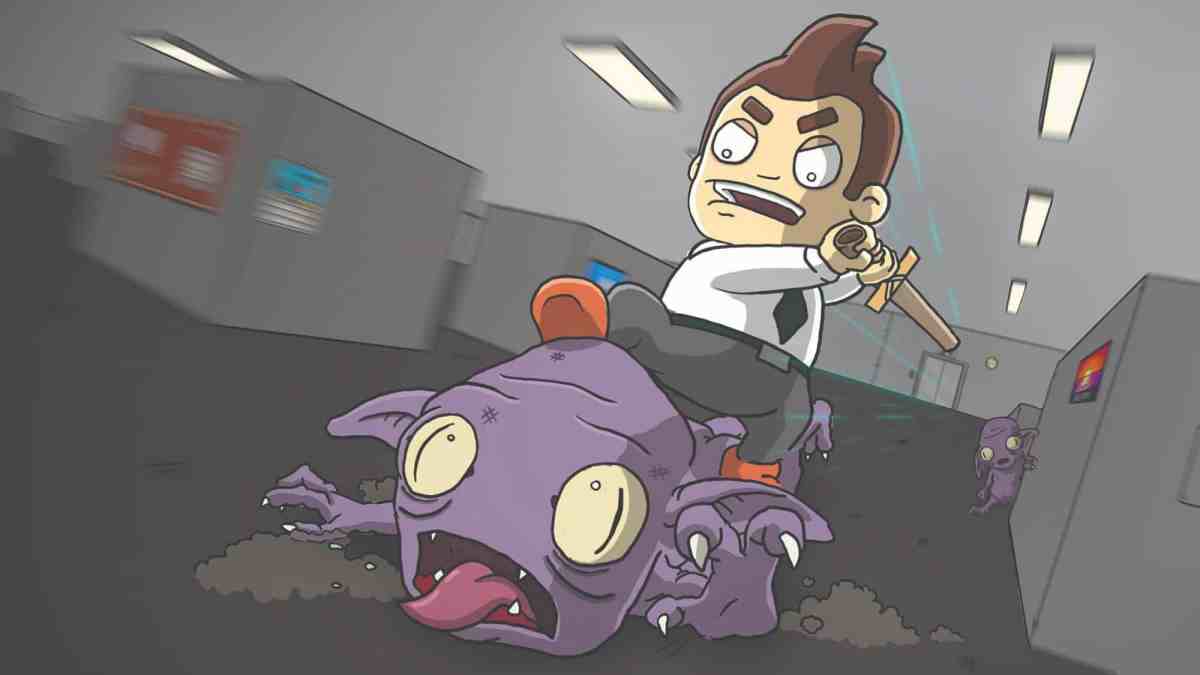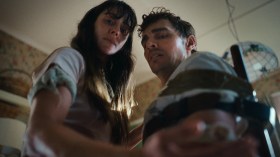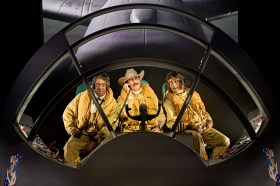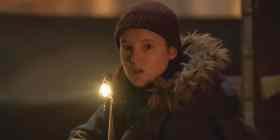Tom Phillips and Jeremy Kelly-Bakker always knew they wanted to create video games at We Made A Thing Studios, their South Australian-based multi-function production company. As creative partners, their interests and experiences largely revolved around film production, but with endless ideas and a need to pivot during the coronavirus pandemic, a branching opportunity presented itself.
The crossover between film production and video game making can be widely understood in the creation that resulted: Box Knight, an office-based dungeon crawler inspired by cinematic epics like The Lord of the Rings. It recently picked up the award for Best in Exhibition at the South Australian Game Exhibition 2024 (Disclaimer: GamesHub was part of the deciding jury) and proved to be one of the most popular games at the show.
It’s a game that demonstrates plenty of filmic techniques in its approach, inspired by the work of Phillips and Kelly-Bakker, whose careers chart visual effects, writing, and production work on major franchises including Harry Potter, the Marvel film franchise, and We Made A Thing Studios’ own in-house film productions.
“We always knew we wanted to do video games,” Phillips told GamesHub. “COVID forced our hand in 2020 [due to film production shut downs], but we always had a few of those ideas we liked to noodle with.”
Read: The Nut Farm, film review: agreeably silly Australian comedy
We Made A Thing Studios was initially based out of the Game Plus co-working space in South Australia, so there were always game developers surrounding Phillips and Kelly-Bakker, sharing knowledge, advice, and skills. It was in this environment that the idea for Box Knight began forming.
“We had the visual effects knowledge, which has a huge amount of overlap with games, you know, in modelling and animation, and texturing and lighting,” Kelly-Bakker said.
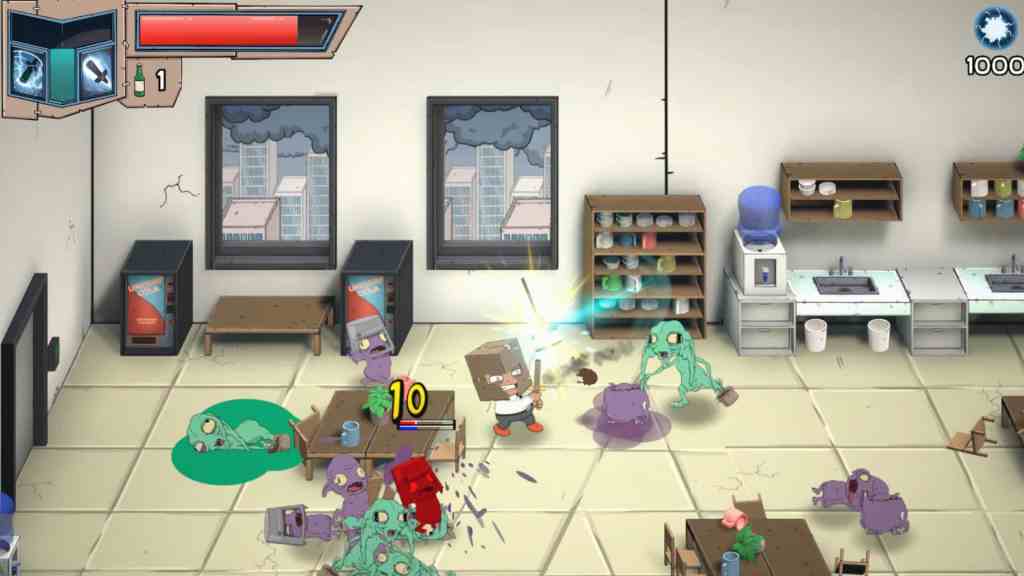
“There’s a cross-pollination of skill sets. By putting ourselves in with a whole bunch of devs, this allowed us to start having conversations. We knew we had project management skills – or we thought we had [them] … we learned the hard way that was a completely different beast. But least it allowed us to start finding collaborators in that space, where we could get the ideas to meet practical application.”
Box Knight was initially a chat in the kitchen, but it soon grew in scope and ambition. Phillips and Kelly-Bakker had known each other for several years prior to the creation of the game, and shared trust in their differing skill sets to bring the project to life.
As the pair told GamesHub, they first met around 2009, in the process of creating individual, “psychotically ambitious” short films, fresh out of study. Kelly-Bakker had a particularly keen interest in visual effects, and was largely self-taught, having been inspired by watching behind-the-scenes production videos for films like The Lord of the Rings.
“That was my film school, because I was a dropout,” Kelly-Bakker said. “That’s how I learned to make movies.” While working on his own project, he was linked up with Phillips, who was working on a sci-fi film, via mutual friends.
“I essentially bullied Tom into being my friend, by holding his film hostage,” Kelly-Bakker said, tongue firmly in cheek. “We’d just hang out for weeks on end, doing all the post-production and visual effects to finish it all up.”
“That period of time showed that from a taste perspective, we were pretty well-aligned,” Phillips said.
From this early meeting, the pair stayed in touch, and while they did go separate ways in the 2010s – into other states, and other other job avenues – they both eventually got to an “intersection of ambition finally meeting skill set” where they could begin working on independent films together.
Phillips had spent some time writing professionally, for creative agencies and advertising, as well as on contracted and non-contracted scripts for unreleased films. Kelly-Bakker had been working on the visual effects for Hollywood feature films, staying “consistently employed by being a total Swiss army knife.”
With complementary skill sets, Phillips and Kelly-Bakker began work on a variety of projects together, including The Way, a road movie starring a pair of telekinetics, which nabbed funding from the South Australian Film Corporation (SAFC). Further projects also received funding support, from both the SAFC and Screen Australia.
We Made A Thing Studios was officially established in 2017, and has greatly expanding since then – although not without aforementioned roadblocks.
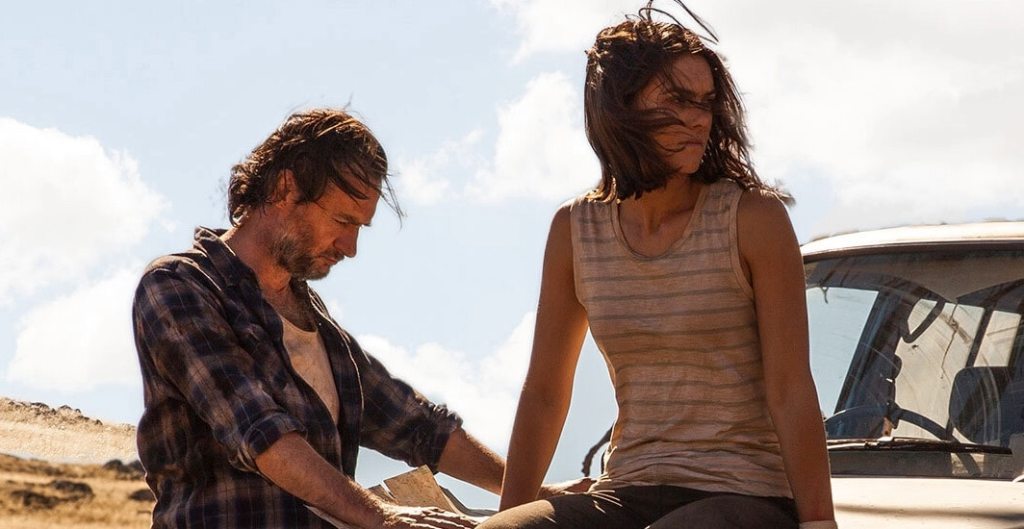
“COVID hit in 2020, and all film projects essentially got stopped because there was no live action shooting,” Phillips said. “We had a decision to make in 2020 – what do we do for that year? For us, it was very much focussed on Box Knight because we had the real rough prototype at that time. [We’d] also delved pretty heavily into Unreal Engine, because we knew there would be a lot of film and game overlap.”
Learning and utilising new production skills in Unreal Engine allowed We Made A Thing Studios to continue developing Box Knight – and eventually, it also gained them funding support for live action series Lucy and DiC, which used Unreal for digital backdrops, via the Epic Games MegaGrant.
“There’s really weird, unexpected tangential opportunities and trajectories by being bit a cavalier,” Kelly-Bakker said. “At the time, [you think] it’s this terrible way to spend the next month or two [experimenting with new tech and ideas] … fast forward a year later, those things suddenly start bearing fruit.”
Both Kelly-Bakker and Phillips believe in the power of experimentation, and wielding a sense of naivety to forge a more creative path forward. By jumping into Unreal Engine, and exploring new mediums in Box Knight, the team have been able to expand and transfer their skillsets, while also gathering pace for new production projects. One of these is a major animated feature, Lesbian Space Princess, which is set for a theatrical release in 2024.
Traditional film and game development skills all feed into each other, evolving capacity and knowledge. As Kelly-Bakker told GamesHub, many of the core skills he and Phillips learned in film production fed into the creation and development of Box Knight – from its sense of character, to its visual quality, to its core concepts.
“One of the things that rolls into game production is a sort of cohesion to what we’re doing,” Kelly-Bakker said. “While we’re not thinking of environments, just these gray boxes to fill in, we are thinking about [in-game] set design, we’re thinking about our colour palettes. We’re thinking about our narrative, and the lore that runs through the objects and props … it’s something that we do a bit instinctually now.”
Read: Black Mirror season 7 is coming, with a surprise sequel
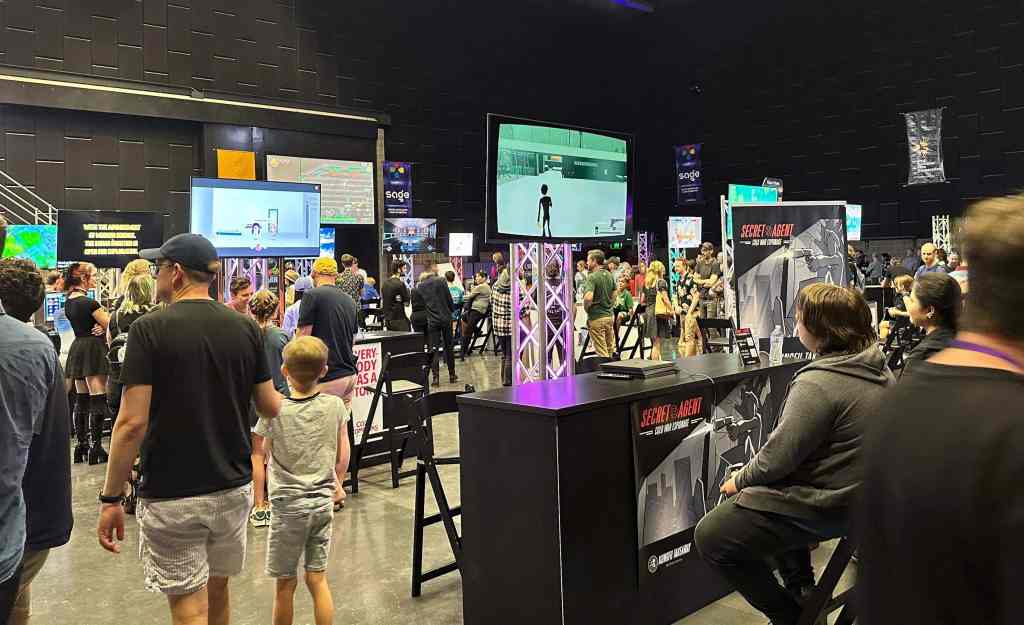
“One of the biggest learnings for us moving from film into games is the idea that film is a linear pipeline,” Phillips said. “You have your concept. You have your pre-production, production, and post, and then you release the thing. Games, you need a really strong game design document (GDD) and a strong team – and it’s completely 360 degrees iterative, the whole way.”
Kelly-Bakker shared similar sentiment, describing no game project as ever “squared away.” It’s a constant process of iteration and refinement, and adapting for feedback – particularly as other parties get hands-on with the game, like at SAGE 2024.
“In filmmaking, your budget mainly goes to the shoot. Once that shoot is done, you might have a little bit in the way of pickups, but you might not be able to get that actor again. You might not get that location again. What you’ve shot is what you’ve got. Whereas [even] games released aren’t necessarily finished … you’re always in blue sky territory, there’s always clever things you can do to fix the game.”
Another skill Kelly-Bakker weaved into Box Knight, adjacent to his interest in film and theatre, is the use of visual “tricks” to ensure players only see what the camera intends. “You can have a piece of geometry hidden outside of a scene to break up the light as it enters, and cast shapes onto the background, and force perspective through the windows. It’s sort of like an old Georges Méliès forced perspective matte painting – because nothing is built as it should be.”
This knowledge of theatre techniques allowed Kelly-Bakker to amplify the cinematic visuals and cartoon aspects of Box Knight. There is a sense of handmade “off-Broadway” quality to the game, with edges not quite right and “no straight lines or symmetry” but that’s also part of what gives the game such a bright, bouncy sense of personality – one aided by Phillips’ work as creative director and narrative writer.
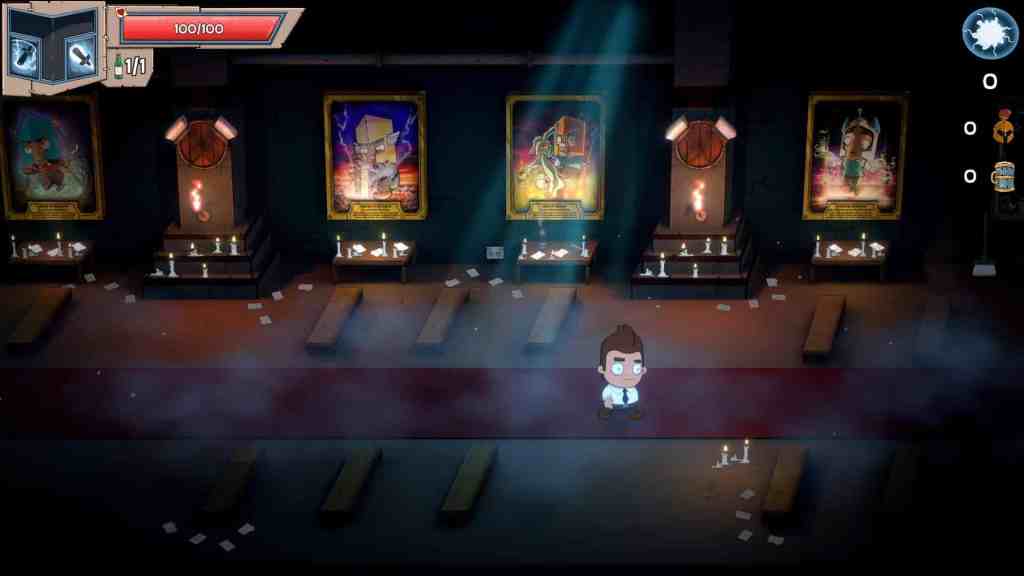
Phillips and Kelly-Bakker collaborated extensively on the development of Box Knight ,combining skills to develop the intricacies and oddities of the game – refining progression, defining it as a roguelike experience, tweaking the UX, ensuring a sense of purpose. As the pair has learned, game development is a very iterative process, and it’s only through trial and error that Box Knight has flourished.
What started as an experimental creative idea shared between friends, who met under unique circumstances, has already evolved to become an accolade-winning production which has taught Phillips and Kelly-Bakker much about organisation and about management, and even fed back into their more mainstream film production processes. As a product of the crossover between film production and game production, it’s a shining example for creatives working in Australia and abroad.
Box Knight is currently in development. You can wishlist the game on Steam.
